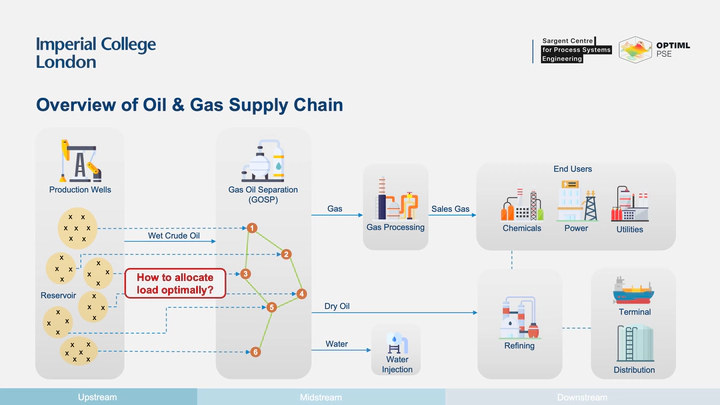Sustainable Energy Systems

The design and optimization of sustainable energy systems represent a highly complex area of research, crucial for enhancing overall network efficiency and reliability. This field explores various strategies, including improving resource planning and load distribution across multiple sites, building operational resilience during outages and critical events, and boosting profitability through optimized utilization and reduced operational costs. Most significantly, these efforts are instrumental in reducing or eliminating the carbon footprint throughout the supply chain. To achieve these objectives, it is essential to transition from traditional single-objective optimization models to multi-objective pareto optimization, focusing on both profitability and decarbonization. Additionally, the integration of stochastic and robust optimization methods is critical for effectively managing system uncertainties such as market demand and supply.